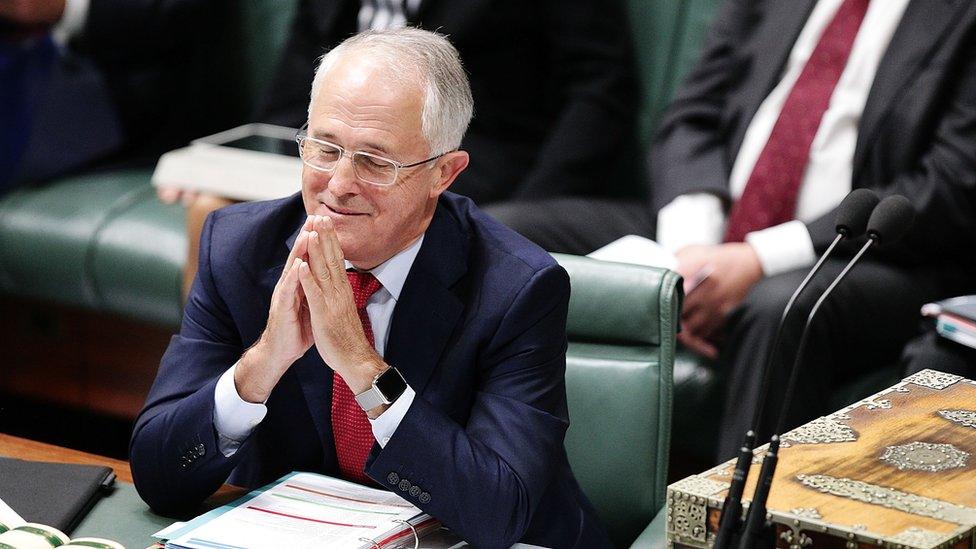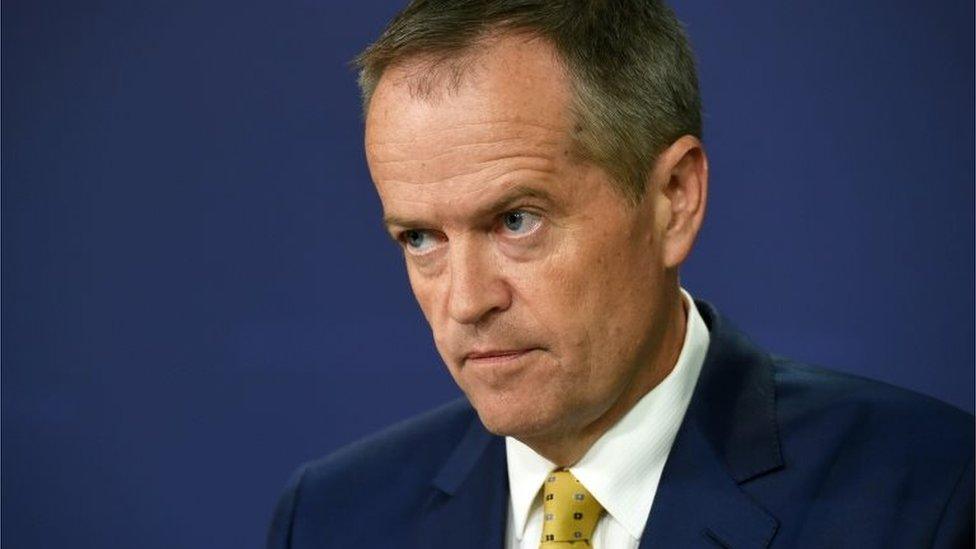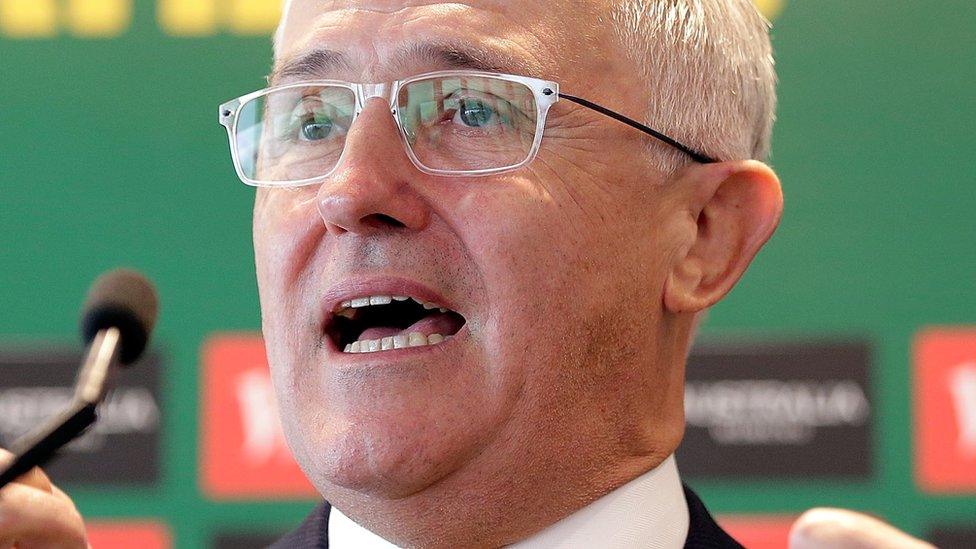Plenty of upside in Australia PM's gamble
- Published

Malcolm Turnbull will be praying that his threat to hold a double dissolution election pays dividends at the ballot box
When Australia's Senate rose for recess on 18 March, it seemed Malcolm Turnbull had missed his chance to hold a double dissolution election.
Unique to Australia, the double dissolution mechanism is ostensibly designed to break a political deadlock. If the Senate twice rejects a piece of legislation from the lower house, this becomes the double dissolution "trigger".
In practice, the double dissolution has usually been deployed for short-term political gain, allowing the government to hold an early election when conditions are favourable.
The present government has two potential triggers - the previously rejected ABCC (Australian Building and Construction Commission) and Registered Organisations bills that target alleged union corruption. Neither made the list of legislation that the Senate considered during its most recent sitting.
Surprise move
The deadline for calling a double dissolution during this term of government is 11 May. The Senate was not scheduled to sit again until 10 May.
The double dissolution option appeared to have dissolved.
But the prime minister's audacious use of an obscure provision in the constitution that allows the governor general to recall both houses of parliament caught his political opponents and pundits by surprise.
The Senate now has three additional weeks to debate the bills. This is ample time to ensure that they either are passed or rejected, and there is upside for Mr Turnbull in both cases.

Opposition leader Bill Shorten is lagging behind Mr Turnbull in opinion polls
If he convinces crossbench senators to support him, he will win a dramatic victory in the Senate, steal back political momentum and lay the ground for an election campaign later in the year.
But the double dissolution scenario seems more likely and this option holds several benefits for Mr Turnbull. Although his ratings have slipped, he is still far more popular than his opposition counterpart Bill Shorten and polls have the Coalition government well in front of Labor.
Marathon campaign ahead?
A double dissolution will also mean that all Senate seats are contested at the election, rather than the usual half. The Senate passed new rules on Friday that will make it difficult for so-called micro parties, who have been a thorn in Mr Turnbull's side, to secure upper house seats.
The Coalition could grab the balance of power in the Senate and do away with the pesky micro party senators in one hit.
The downside for Mr Turnbull is that he has effectively given notice of polling day 15 weeks in advance. If the double dissolution is called on 11 May, Australia will be faced with a marathon seven-week election campaign.
Double dissolutions have not always worked out for the government either - the Coalition lost government at the 1983 election after Labor unexpectedly made the popular unionist Bob Hawke its leader.
Mr Turnbull's momentum has been flagging, and long election campaigns are unpredictable. He may have snatched back the narrative, but whether he can keep hold of it is another matter.
- Published21 March 2016

- Published18 March 2016
